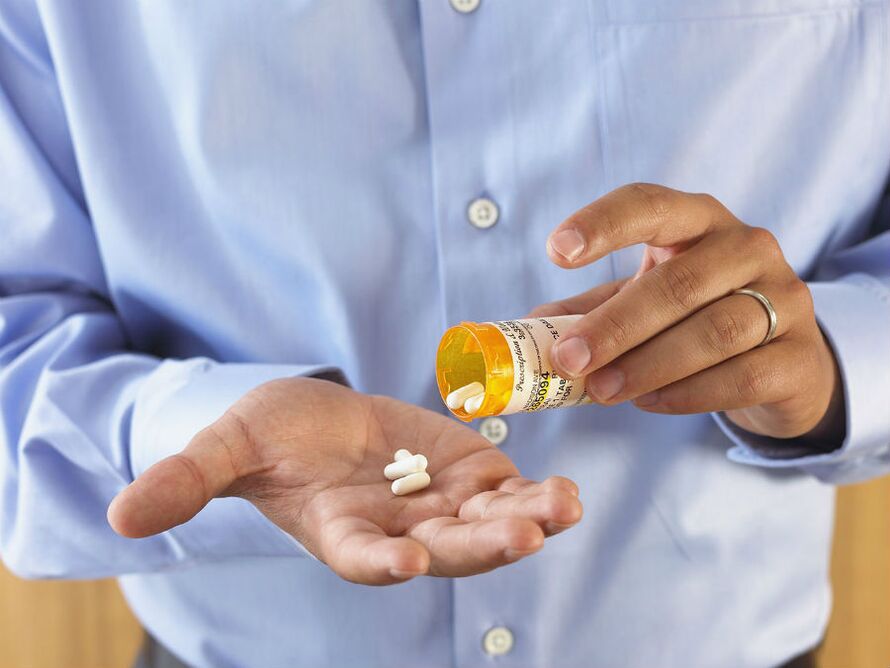
Inflammation of the prostate gland - prostatitis - is increasingly common in men of reproductive age, that is, from 20 to 50 years. A few years ago, this disease was most often attributed to men over 60 years of age. The reason for this change, of course, is the spread of factors that depress the body.
Thus, today this insidious disease has become a real problem in modern urology: patients, unaware of the consequences, prefer to remain silent about their poor health. However, this dizziness can lead to such sad consequences as irreversible infertility and inflammation of many organs.
Prostatitis occurs due to the appearance of a bacterial infection, the causative agents of which enter the prostate in different ways: ascending (through the urethra), descending (from the bladder), lymphogenic and hematogenous (due to inflammation of other organs ): sinusitis, anal fissures, hemorrhoids and even cavities). However, in addition to the infection itself, there are a number of factors that trigger the inflammation mechanism of the prostate gland.
Hypothermia, weakened immunity, hormonal disorders, damage to the urinary tract, sexually transmitted diseases, irregular sex life, and a passive lifestyle contribute to the development of the disease. There are two types of prostatitis: acute and chronic, each of which requires both general and individual treatment approaches.
Treatment
Treatment of the disease is reduced to the elimination of a stagnant or inflammatory process in the prostate gland. But in order to finally treat this ailment, you must first exclude the cause of its occurrence, and then treat the disease itself.
Diagnosis: a smear from the urethra to check for viruses, protozoa, or bacteria in the gland. If any are identified, then antibacterial therapy (antibiotic treatment) will be needed for a bacterial infection and for preparations of viral etiology, interferon, or gamma globulin. Depending on the degree of injury, it is determined how long this stage of treatment will last.
Medicines - you can't do without them
You must first make sure that the process is infectious in nature. If so, drugs in this category are needed. Also, they are almost always prescribed for chronic prostatitis, even if no obvious signs of infection are found.
The best option would be to first take a swab from the urethra and examine it for sensitivity of bacteria to antibiotics; this will allow you to choose the most effective drug.
Antibiotic therapy is carried out with a group of fluoroquinolone antibiotics. This is because this type of antibiotic penetrates well into the tissues of the prostate gland, unlike the antibiotics of the penicillin, cephalosporin and macrolide series.
Antibiotic therapy can take a long time, up to three months. However, do not forget that the thoughtless use of antibiotics has brought no benefit to anyone; be sure to consult with a specialist so they can advise you which medication you need.
Note to patient: many drugs in this category have a depressant effect on sperm, but this is only during treatment! There is no need to worry about this: after a couple of months, the fertilization capacity of the sperm is fully restored.
Along with antibiotics, it is advisable to prescribe antifungal drugs, since antibiotics act only on bacteria, and against the background of reduced immunity, a predisposition to fungal (that is, fungal) diseases appears.
It is also possible to prescribe alpha blockers, which suppress pain and relieve spasm of the gland, relaxing the smooth muscles of the bladder neck and prostate gland.
In parallel with antibiotic therapy, a man is prescribed a prostate massage; the procedure is quite uncomfortable and painful, but absolutely necessary to cure prostatitis. Also, the doctor will prescribe fortifying drugs that dissolve stagnant processes and increase the body's immunity.
The patient himself will have to do a lot: in order for the treatment to pass faster, to ensure a better blood supply, the patient must lead an active lifestyle: moving more, sitting or lying down less.
For a comprehensive and effective treatment of prostatitis, a man is likely to be prescribed additional medications that include natural and natural ingredients. These drugs significantly improve the prognosis of treatment.
We repeat: taking these drugs does not exclude all previous stages of treatment, but only complements them. In no case can you replace the intake of an antibiotic with any herbal tincture, they have completely different directions of action. Let's take a look at the most common herbal remedies for prostatitis.
In the modern pharmaceutical market, drugs for chronic and acute forms of prostatitis are widely represented. However, it should not be forgotten that the selection of drugs is a purely individual matter, and before you start taking any drugs on your own, you should consult a urologist. In fact, sometimes self-medication can do far more harm than good.
Carelessness is the enemy of health
What will happen if the disease is allowed to run its course? If a man is "lucky" to contract an acute form of prostatitis, it is extremely important to consult a doctor at the first symptoms; This will help to cope with the disease much more quickly and efficiently.
If the pathology passes into the chronic stage, long-term remissions are possible, during which the pain in the groin when urinating will temporarily stop bothering the patient, the body temperature will not differ much from normal, the man may decide that his function sexual has also recovered.
However, during this "deceptive euphoria", the inflammatory process, which originated in the prostate, penetrates deeper and deeper into all human organs. Also, remissions are replaced by acute exacerbations, the symptoms of which are much brighter than the previous ones.
Neglect in relation to your own health can lead to many unpleasant complications: abscesses, loss of potency, infertility. Also, infertility in advanced stages of inflammation of the prostate gland can rarely be treated.
Attention! Don't try to self-medicate. A medical consultation and an examination at the clinic are required.





























